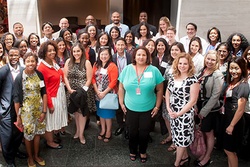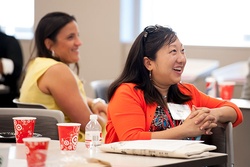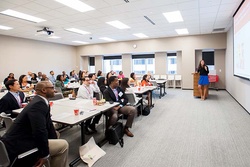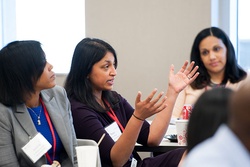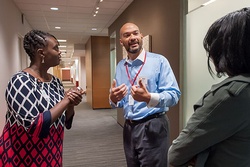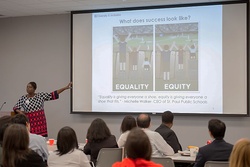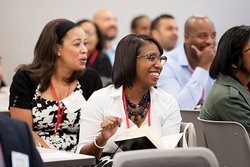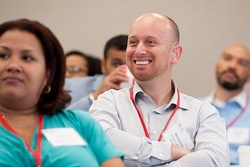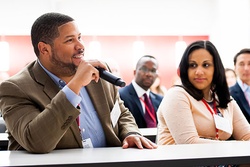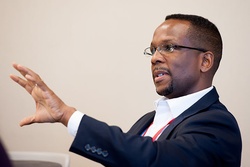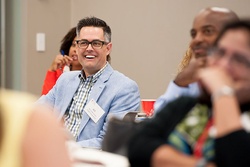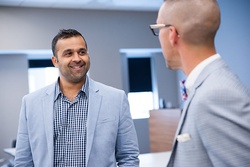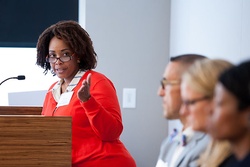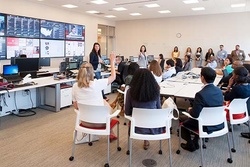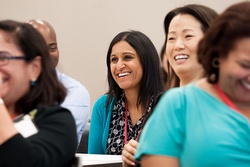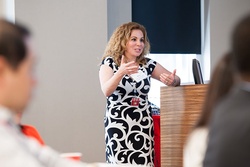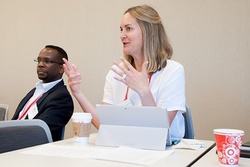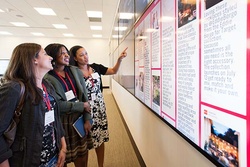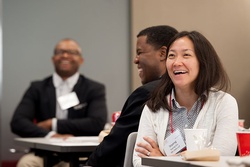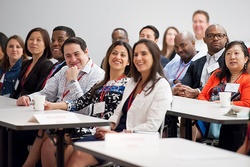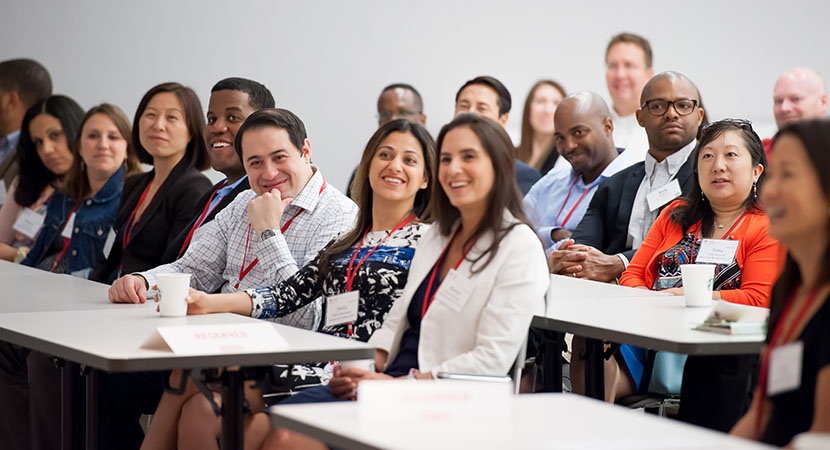
The Fellows listening to Brian Cornell, Target Chairman and CEO, speak. (Photos by Stephen Allen)
MINNEAPOLIS — At the invitation of Executive Vice President and Chief Legal Officer Timothy Baer, several dozen LCLD Fellows visited the headquarters of Target Corporation in late June for a memorable, day-long Learning Experience in the Twin Cities.
Welcomed by Target’s Chairman and CEO, Brian Cornell, the Fellows heard first-hand how Target, one of the world’s leading retailers, has set about transforming—some would say revolutionizing—its stores and operations to keep up with rapid changes in digital technology, fashion, and consumer lifestyles.

“I wish there was a formula for managing change,” said Cornell, who was hired as CEO in 2014 and hit the ground running, the first outsider ever to lead Target. One secret of his success: He came in with a keen appreciation for Target’s values—“what made it a great company to begin with.”
Another secret: “Be a really good listener,” he advised the Fellows. “Always invite input, and pose three times more questions than comments.”
To illustrate his point, Cornell spends a considerable amount of time visiting Target stores and talking with guests and team members, as Target continues a multiyear transformation of its business to improve customer satisfaction and the bottom line.
Not that the decision to remake Target has been easy. Change involves substantial risk, said Keri Jones, Executive Vice President of Global Supply Chain and Operations. “Risk goes way beyond legal issues—it touches on reputation, which is immensely important.”
Jim Rowader, Vice President and General Counsel for Employee and Labor Relations, added that the Legal department has had to be as agile as the rest of the company.
“As lawyers, we’re trained to always want to have the perfect answer,” Rowader said. But responding to change and innovation requires “rapid reflexes” and a comfort with uncertainty. “How do you know when you’re there? When is a ‘good’ legal opinion ‘good enough’?”
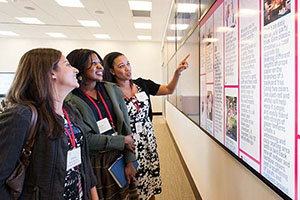
The Fellows heard more about Target’s transformation from a lineup of top executives, including Caroline Wanga, corporate Director of Diversity and Inclusion, who emphasized the need to make business systems more open and equitable. Dustee Jenkins, Senior Vice President of Communications, counseled the Fellows to “own” their personal brand and messaging: “Make it yours. Don’t allow someone else to write your headline.” And Laysha Ward, Chief Corporate Responsibility Officer, reminded them that “great leaders listen—especially in times of transformation.”
Target’s current emphasis on innovation recalls the opening of the first Target store in 1962—a radically “new idea in discount stores” from the Dayton Company, a venerable Minneapolis-based department store chain. More than 50 years later, the company is still reinventing itself—as the “Expect More, Pay Less” discount store of the future.
The night before the Learning Experience, the LCLD Fellows were hosted at a reception sponsored by LCLD Member firms Constangy, Brooks, Smith & Prophete and Faegre Baker Daniels.
LCLD extends a special thanks to Target’s Law and Employee & Labor Relations departments, including Bill Underwood (LCLD Diversity Contact), Sara Bolden (2014 Fellow), Julie Drake, Gulzar Babaeva (2015 Fellow), Mara Garcia Kaplan (2013 Fellow), Theresa Harris (2014 Fellow), Dionne Blake (2013 Fellow), and Lisa Williams.
For more information about the LCLD Fellows Program or hosting a Learning Experience, please contact Program Manager Nichole Velasquez.

